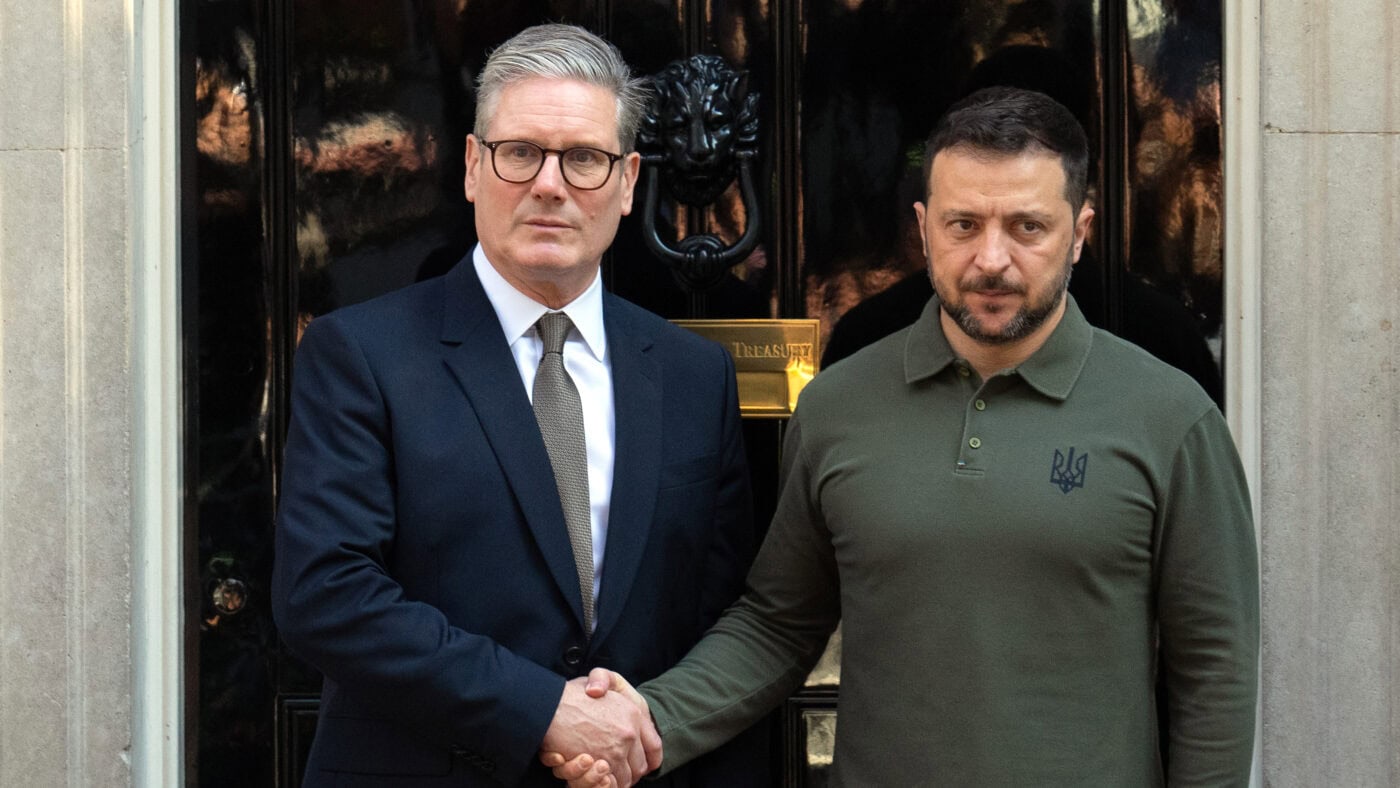The Ukrainian strike into Russian territory around Kursk, which began on 6 August, has been cause for cheer among those who support the right of Ukraine not just to defend its borders but to exist. By crossing into Russia in considerable force, the Ukrainian armed forces have changed the narrative of the war and unsettled the Kremlin, claiming to have captured nearly 400 square miles of territory.
Nevertheless, the weight of numbers remains stacked against Ukraine and it is a testament to the courage, drive and spirit of Ukrainian soldiers, armed and equipped by the West, that it is able to strike back so hard. Last weekend, President Volodymyr Zelenskyy reminded his backers again that he needs more if Ukraine is to survive. On social media, he pulled no punches:
It is crucial that our partners remove barriers that hinder us from weakening Russian positions in the way this war demands… We could decisively deprive the occupiers of any ability to advance and cause destruction if our long-range capabilities were sufficient… We’ve seen the UK demonstrate true leadership… Unfortunately, the situation has slowed down recently.
Zelenskyy is not using code here. He wants the British government to allow the use of UK-supplied Storm Shadow cruise missiles to attack targets well inside the borders of Russia. The fire-and-forget missiles have a range of around 350 miles and carry a 1,000-pound warhead which makes them potent strike weapons. However, there are currently restrictions on how these missiles can be used.
Initially, the UK forbade the use of Storm Shadows to strike targets beyond the Russian border. Last month, however, the Prime Minister announced that Ukraine could attack targets in Russia itself. However, the weapons can still only be used for ‘defensive purposes’, though that term has not been explicitly defined. It is clear, though, that Zelenskyy still feels his military is being held back from using ‘long-range capabilities’ to ‘weaken Russian positions’.
The Government’s reaction has been frustratingly familiar. Rather than address the issue directly, Downing Street spoke in generalities: Britain’s support for Ukraine is ‘resolute’ and ‘unwavering’.
This is simply not good enough. When your beleaguered ally, fighting a war of national survival, tells the world that he needs ‘barriers’ to be removed and that your support has ‘slowed down recently’, it is insulting – and dismissive – effectively to talk over him and assert that all is well. It clearly is not, and Zelenskyy is not saying these things without a reason.
Keir Starmer has a right to differ from President Zelenskyy. The United Kingdom is not obligated to accede to every demand made by Kyiv, but if we are to refuse the President’s request, we should at least be honest and explain why.
The most frequent argument for maintaining restrictions on what the Ukrainian armed forces can do is a fear that the conflict will ‘escalate’. To a country which has 20% of its territory under foreign occupation and has seen more than 10,000 civilians and 80,000 military personnel killed, the fear of ‘escalation’ must ring rather hollow.
What the West fears is forcing Vladimir Putin to resort to nuclear weapons. In June, the Russian president used a conversation at the St Petersburg Economic Forum to reject the idea of nuclear escalation at this point, serving neatly to remind his audience that Russia has a wide array of such weapons and could use them if circumstances were to change.
We are talking primarily about tactical nuclear weapons – missiles and bombs designed for the battlefield – rather than long-range strategic strikes. Nevertheless, some tactical nuclear weapons have a yield of up to 50 kilotons: Little Boy, the bomb which destroyed Hiroshima in August 1945, was a 15-kiloton weapon.
Russia’s standard doctrine has been that tactical nuclear weapons would only be used if it faced an existential threat, which is clearly not the case currently. Putin has made threats and pulled back several times already, which suggests that the threshold for nuclear escalation remains very high, and the invasion of Kursk Oblast has not crossed it. So it seems unlikely that allowing Ukraine to strike legitimate military targets inside Russia would provoke a nuclear response, as former chief of the General Staff General Sir Patrick Sanders has recently argued.
If Britain’s position is that more extensive use of ‘long-range capabilities’ could provoke Putin into starting a nuclear war, let it say so. Otherwise, Starmer should accept that weapons like Storm Shadow are Ukraine’s most potent tool in this conflict, and allow them to be used to their greatest military advantage.
What is unacceptable is to tell the world that our support for our ally is unwavering, when that ally is clearly saying something different. Sooner or later, Keir Starmer will have to learn that making a statement does not make it real. Now seems as good a time as any.
Click here to subscribe to our daily briefing – the best pieces from CapX and across the web.
CapX depends on the generosity of its readers. If you value what we do, please consider making a donation.


